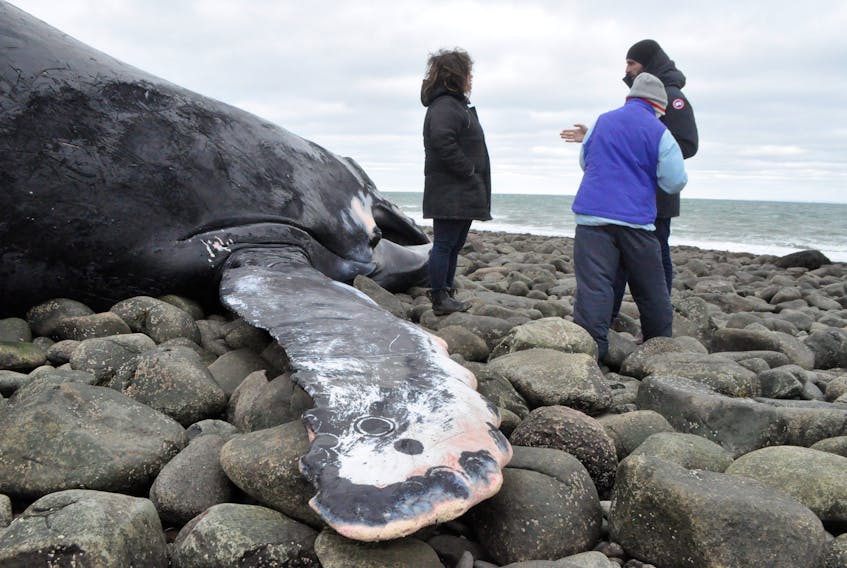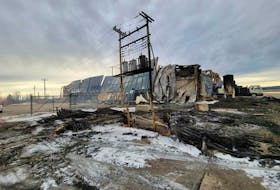HARBOURVILLE – And just like that, the beached humpback whale carcass is gone.
Reports the body had washed away began circulating Sunday, when people visiting the beach reported on social media the carcass appeared to be gone.
While Andrew Reid, response coordinator for the Marine Animal Response Society, could not confirm whether the body is actually gone, he did confirm that if it has, the whale’s body will not be tracked since no necropsy was ordered.
The carcass had been laying beached, since March 18, when it was first discovered by area residents.

Samples taken from the whale will be given to whale researchers that look into other healthy humpback populations. They can sometimes take years to be processed, according to Reid.
“Sometimes carcasses are tracked, but it depends on the species, and support from the government,” he said.
Second whale washes up on Magdalen Islands
Reid has also confirmed a second young humpback whale has washed ashore along the Magdalen Islands and was reported to MARS the evening of March 26.
The young whale was alive when it became beached, but was emaciated, just like the young whale’s body in Harbourville.
Reid said another response team answered the call, and briefly considered whether refloating the animal was feasible, but due to its poor health and thin frame, decided against it.
A necropsy was arranged and performed on the carcass March 28, after the whale died, with the Atlantic Veterinary College overseeing the procedure.

“It’s concerning, having two young, thin humpbacks washing ashore in such a short amount of time. We’re hoping this isn’t a sign of the season, and it’s a coincidence,” said Reid.
Washed up whales still resonating
Locals, like Duncan Karsten, had expressed their surprise at seeing the body wash up on their beach March 18.
Karsten lives on Shore Road near the beach access area and was among the first people to see the carcass.
He said seeing the massive animal was a sad occasion.
"This is a once-in-a-lifetime sighting," he said.
He recalled seeing at least one humpback whale breaching in the waters near Harbourville this past summer, a rare sighting since humpback whale sightings rarely occur at the end of the Bay of Fundy and leading into the Minas Basin.
"I do know that sighting was a very rare one, so it makes you wonder," he said.









